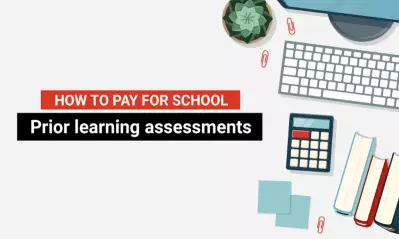Is automation the No. 1 job killer?

µ˛≤‚Ã˝William Ordeman

Workforce automation typically sounds either exciting or anxiety inducing. If you‚Äôre just starting out in your career, maybe workforce automation has the potential toÃ˝increase both the speed and qualityÃ˝of your output. (Exciting!)
If, on the other hand, you‚Äôre a subject-matter expert or you have decades of experience in one role, the prospect of beingÃ˝replaced by artificial intelligence (AI) or a robotÃ˝seems both imminent and worrisome. (Anxiety inducing!)
Love it or hate it, however,Ã˝workforce automationÃ˝will likely continue to change the scope of work across industries. Here‚Äôs what you should know.
What is workforce automation?
Automation broadly refers to the use of technology, such as machine learning or robots, to perform tasks human workers have historically completed.
Automating certain jobs promises to increase efficiency, reduce costs and improve productivity in the workplace. And while implementation across industries will likely involve trial and error, these technologies are poised to be welcomed by organizations looking to streamline their business.
Professional career advisors are witnessing this evolution in real time.
Jessica Roper, for example, serves as the director of Career Services at ∆þ…´ ”∆µ. Her department develops strategies and resources to enhance career readiness among workers. When it comes to being ready in the age of AI, Roper knows what works ‚Äî and what doesn‚Äôt.
Take finance and banking. That’s an industry that has spent much of the last decade or so leaning into automation.
“In banking, you used to have to go into a building and work with a teller to make a transaction,” Roper says. “Now, you can do this all from your smartphone.”
This change has meant numerous banks and credit unions have been closing their physical locations as services like deposits, account management and transfers have become increasingly automated.
Automation and the future of work
Despite concerns of how automation might impact the future of employment, many roles most affected by automation are those that require little to no expertise.
“Automation first impacts jobs that require mundane or repetitive tasks — think cashiers and file clerks,” Roper says.
The good news? Automating these jobs doesn’t necessarily mean the workers they replace will become unemployed.
“While we do see automation impacting some jobs, it is never going to fully replace human workers,” says Roper.
After all, cashiers and file clerks can monitor these processes and offer human assistance when technologies run awry. As Roper describes it, “Automation and AI are effective for taking on structured, low-skilled tasks, but they lack the ability to complete activities that require emotional intelligence, creativity or contextual awareness.”
In her view, even industries highly impacted by automation will always need human workers, even if their roles and duties change.
So, robots won’t be taking my job?
Anxiety about the effect of machines on employment has been in circulation for decades. In fact, Roper describes such anxiety as a “knee-jerk reaction.”
History, however, offers some reassurance. ‚ÄúThe reality is there is always going to be a need for humans,‚Äù she says. ‚ÄúWe should not fear automation eliminating jobs but rather be aware of how it isÃ˝transforming them.‚Äù
Rather than focusing on which roles might or might not be lost with the integration of automation, Roper says, career professionals need to think about how they canÃ˝utilize robots and machinesÃ˝to improve job performance and make a person‚Äôs job easier.
The hidden impact of automation: Skills-based hiring
The rise in automation is not only changing the nature of work; it‚Äôs also changing hiring practices. Roper and her team have specifically witnessed a huge shift towardÃ˝skills-based hiring.
“In the early 2000s, we saw many employers adding degree requirements to their jobs,” Roper says. “Now we are seeing many employers eliminating these requirements in favor of skills.”
Such a focus will impact everything from resumés to the kinds of degrees undergraduates pursue. It also means that job seekers must not only have certain skills but also be able to articulate and demonstrate those skills to a potential employer.
What skills are highly sought these days? According to Roper, they’re always shifting. However, “critical thinking and emotional intelligence are two skills that are a mainstay,” she says.
We now live in a world that is inundated with information, and the ability to analyze data logically and effectively is valuable across jobs and industries.
‚ÄúEmotional intelligence is all aboutÃ˝interpersonal relationships,‚Äù Roper says, ‚Äúand I don‚Äôt think there is a job out there that doesn‚Äôt require you to communicate with a team member.‚Äù
Diversify your skill set
AÃ˝Ã˝found almost 50% of millennial and Gen Z professionals are looking to work for companies thatÃ˝offer options for continual learning.
This phenomenon is highlighted by the growing pool of professionals who no longer consider climbing the corporate ladder a measurement of career success. Instead, many professionals are making crucialÃ˝horizontal movesÃ˝to widen the breadth of their skill set.
According to Roper, this is a game changer for the future of professional development. ‚ÄúI am a huge advocate for making career moves andÃ˝gaining experience in multiple areas,‚Äù she says. ‚ÄúIn fact, with the rise of skills-based hiring, employers are looking for diverse work experience when hiring and are promoting professional development and new skill acquisition throughout their employees‚Äô tenure.‚Äù
The benefit of this approach is twofold: Employees have the license to explore diverse interests and even combine interests and career paths, while workers gain a better and more diversely skilled workforce.
‚ÄúFor example, I know of a student who was changing careers from education to behavioral health and counseling,‚Äù Roper recalls. ‚ÄúShe was able to leverage her experience as a high school art teacher to propose using art as a form of therapy with her clients.‚Äù Such a nuanced approach can only happen when job seekersÃ˝tailor their experiencesÃ˝to their personal goals and interests.Ã˝
As machines and robots continue to change and transform the workforce, workers will likely be at an advantage if they accrue a wide variety of skills and education while also maintaining digital fluency. The future of work, after all, most likely will require the best of both worlds.

ABOUT THE AUTHOR
William Ordeman is a lecturer of business communication and a PhD candidate studying communication, borders and public health. Before entering higher education, he led marketing initiatives for several global enterprises as a marketing automation specialist. He has published an edited book, written several articles and teaches writing, public speaking and employment training to his students. When not plugging away at his dissertation, Ordeman is likely playing his drums or reading a sci-fi novel.
This article has been vetted by ∆þ…´ ”∆µ's editorial advisory committee.Ã˝
Read more about our editorial process.
Read more articles like this:


